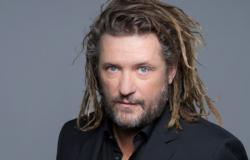Someone said, rightly, that Senegal is a permanent miracle. A country (the westernmost in Africa) favored by its ecosystem, its biodiversity, its climate, its beaches, its fish-rich coast… Which has never experienced a constitutional rupture.
Rich in its legendary hospitality (land of “Teranga”). Of its cultural, political and religious diversity. From its illustrious guides: Cheikh Ahmadou Bamba Mbacké, Elhadji Malick Sy, Cheikh Al Ibrahima Niass, Seydina Limamoulaye, Cardinal Hyacinthe Thiandoum… From its artists known and recognized throughout the world: Ousmane Sow, Youssou Ndour, Baaba Maal, Coumba Gawlo, Sembène Ousmane, Ismaël Lô, Kalidou Kassé… Of its public leaders: Blaise Diagne, Galandou Diouf, Mamadou Dia, Lamine Guèye, Léopold Sedar Senghor, Cheikh Anta Diop, Majhemout Diop, Abdoulaye Wade… Of its journalists who have become the pride of an entire cooperation: Mame Less Dia, Bara Diouf, Djib Diédhiou, Babacar Touré, Cheikh Tidiane Camara, Mame Less Camara, Mamadou Koumé…
Few countries have been endowed with such precious resources that compete on a daily basis with ardor and enthusiasm in creation and innovation. An excellent thing, because it constitutes the foundation on which the country builds its future and realizes its dream: a Senegal even stronger in justice and transparency. Certain heirs of this rich heritage, carried away by who knows what strange and fertile imagination, want, today, to create a new way of doing journalism. This is called reinventing the wheel. So far, we know the interviewer, the interviewee. The guest, the journalist. And year after year, it seemed to work. The new discovery (which awaits validation by Cored) now requires that the journalist be both the interviewer and the interviewee. The one who asks the questions and gives the answers. The alpha and the omega. Doing everything: questioning, directing, directing, imposing and…responding, even snatching the floor from the guest ultimately reduced to being a passive actor.
No opportunity is offered to the latter to say a word and say why he was invited: to share, analyze and give his point of view. Exactly as we saw it, Monday December 30, 2024, on a set of the “most listened to radio station” in Senegal. The journalist: “Who would have thought, Pastef would plunder the country’s resources. What do you think? » The guest: “I’m not here to personalize and index people”. The journalist: “The regime is starting to distribute the money. Are you taken into account and do you have an idea of the exact amount? The guest: “It’s up to you, journalists, to edify us.” The journalist loses his temper because he does not have the answers he wanted to have: “You are all the same. Only your interests drive you… This country has become rubbish.” And the guest, disillusioned, returns the antenna. Leaving the journalist and his colleague to continue the broadcast alone.
Instead of apologizing to his listeners, our dear great journalist acted as if nothing had happened. This is the new type of journalism made in Senegal which consists of inviting someone to throw in their face: “you do and say what I want or you leave”! No offense to all those media professionals who still cling to journalistic orthodoxy. And yet, it is good to know that the interview is a demanding genre which serves first and foremost to clarify and complete information. Check them. In no way is it confrontational. Like any guest, the guest on a radio and TV set must be comfortable. He must benefit from all the favorable psychological conditions to feel the need to confide and the desire to convince and inform exhaustively. This relationship of trust is essential to allow the interlocutor to share the depth of his thoughts. To the delight of readers, listeners and viewers. Our reasons for being!






